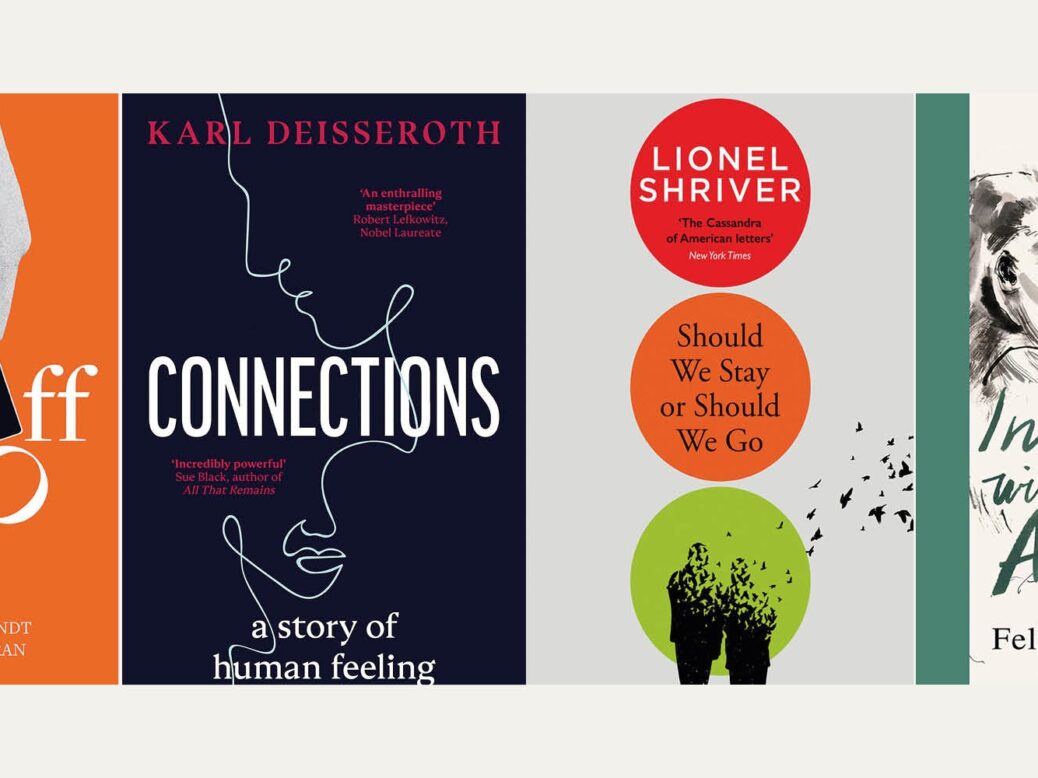
The Pay Off by Gottfried Leibbrandt and Natasha de Terán
In 2019, in an effort to save the Iran nuclear deal, the UK, Germany and France established a payment channel to the country to bypass US sanctions imposed by Donald Trump. The project was doomed: the dollar is all-powerful – Europe’s financial sector can’t function without access to the US payment system – and so it was more than a year after its creation before the Instex trading mechanism was first used. Payment is political; it’s a diplomatic weapon and the US has the arsenal.
Payment is cultural, too (the Germans love direct debits, the Americans their chequebooks), yet each transaction forms part of a single global system, without which the world would cease to function. What’s more, payment is overlooked and misunderstood – but it shouldn’t be, say the authors of this lucid book. They ask the big questions – who controls our payments system? What do they do with our data? How can we teach children about money they can’t touch? – and respond thoughtfully to the developments of the digital revolution, including the rise of cryptocurrencies, challenger banks and beyond. The Pay Off is a guide to modern finance from which everyone can profit.
By Katherine Cowles
Elliott & Thompson, 320pp, £16.99
[See also: Olivia Sudjic’s Asylum Road is a post-Brexit novel about loss and longing for home]
Connections: A Story of Human Feeling by Karl Deisseroth
As a neuroscientist, Karl Deisseroth helped develop a groundbreaking technique known as optogenetics, which enables scientists to activate specific brain cells using light, as well as a method for making brain tissue transparent so that researchers can better study its circuitry. As a psychiatrist, he specialises in patients with autism or treatment-resistant depression. Connections, his first book, explores the evolutionary and biological origins of feelings, drawing on his patients’ often harrowing stories to illuminate the historical, biological and personal roots of mental illness.
For instance, his encounter with a man who becomes manic after 9/11 leads Deisseroth to the theory that mania might once have had a social function, enabling our ancestors to access untapped reserves in the face of an existential threat. “Evolution creates intelligence that is unsuited for the world that intelligence, in turn, creates,” he writes. Researchers can now stimulate the exact part of a mouse’s brain that triggers unprovoked aggression, suggesting that the question of why humans commit evil could one day become an answerable biological one rather than an irresolvable philosophical one – but at what cost?
By Sophie McBain
Viking, 256pp, £20
[See also: Reviewed in Short: New books by Jenn Shapland, Ulrich Alexander Boschwitz, Simon Armitage and Jon McGregor]
Should We Stay or Should We Go by Lionel Shriver
Lionel Shriver is no stranger to tackling uncomfortable issues – or providing an unpopular opinion. She was recently described by the New Yorker as “relentlessly contrarian”; the novel that brought her international acclaim, We Need to Talk About Kevin (2003), confronted maternal indifference. Now, Shriver takes on ageing and the UK’s social care crisis.
In Should We Stay or Should We Go, we meet husband and wife Cyril and Kay, a former NHS doctor and nurse respectively, who have spent their mid-life reluctantly caring for their elderly parents and witnessing their drawn-out decline. To retain agency over their own future and avoid becoming a burden to either their children or the NHS, the couple make a pact to take their own lives on Kay’s 80th birthday. In the following chapters, Shriver brazenly mixes dark humour with emotional intensity as she plays out 12 different outcomes for Kay and Cyril, from second thoughts that lead to a degrading care home to a supernatural drug that reverses ageing. Should We Stay or Should We Go is a bracing and deliberately jarring read, but it raises compelling questions about the right to self-determination and the reality of a broken social care system.
By Christiana Bishop
The Borough Press, 288pp, £18.99
[See also: Deborah Levy and the domestic]
Interviews with an Ape by Felice Fallon
Koko the gorilla, a captive animal who died in 2018 having spent most of her life in California, had a vocabulary of some 1,000 sign words (about the same as a three-year-old human) and could understand up to 2,000 spoken words. Her abilities suggested innumerable possibilities, not just about language but about understanding an animal’s inner life – its thoughts and feelings. Koko’s story was the starting point for Felice Fallon’s debut novel about ape-to-human – primate-to-primate – communication.
Her gorilla is Einstein, captured in central Africa when his parents are killed, and then imprisoned in a zoo. His chief human interlocutor is a vet named Dr Graciela Sadiq and the novel is composed of the transcripts of their conversations. What unrolls is a narrative of capture, incarceration, life in the zoo when Islamic militants overrun the city, a sale to a corrupt billionaire and conversations with other animals – a sow, an orca, an elephant calf and others. Some of the humans behave worse than the animals and, of course, the dividing line between species is vanishingly thin, but even if Fallon doesn’t say anything new, Einstein’s tale is both affecting and delivered without mawkishness.
By Michael Prodger
Century, 400pp, £14.99
This article appears in the 14 Jul 2021 issue of the New Statesman, Apple vs Facebook





